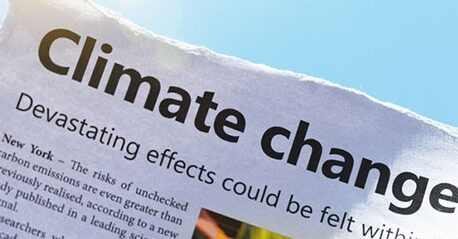New York: Seeing news about climate change daily may frighten people, but it may help shape the way people feel about the phenomenon and also help take action to address it, finds a study.
Researchers from the Pennsylvania State University conducted two separate studies to understand what seeing bad news about climate change means for people.
The first study involved exposing participants to three days of negative news stories about climate change. A follow-up study consisted of participants reading negative news headlines about climate change in the form of Twitter posts for seven consecutive days. The results, published in an article in the journal Climatic Change, showed that bad news in climate can make people more afraid over time, but it also may encourage audiences to think about what society can do to address the problem.
“We found that three days in a row of reading doom-and-gloom news stories about climate change was linked to greater fear and less hope, which can potentially hurt an audience’s attitude that they can do anything to tackle the problem,” said Jessica Myrick, Professor of Health Communication at Penn State.
“However, our follow-up study had people look only at headlines and not full news stories for a longer period of seven days in a row. In that study, we found that fear peaked after a few days and then held steady.”
The researchers reported that over time, people who repeatedly saw climate change headlines started to feel like they could do more to affect change and that the topic of climate change was important.
“Our findings suggest that people have gotten used to doom-and-gloom reporting around climate change and what may be more important for motivating them to take action is that they see coverage of it on a daily basis,” Myrick said.
“This is called an agenda-setting effect, where a topic that is covered more often in the news is then viewed as more important by people who consume the news.”
According to Christofer Skurka, the paper’s lead author and an assistant professor of media studies in the Donald P. Bellisario College of Communications at Penn State, decades of research in communication and psychology show that under certain circumstances, fear can be motivating.
“We found that people exposed to the high-threat headlines, which tended to evoke more fear, generally expressed greater intentions to share the information than people exposed to the low-threat headlines, which means there may be an advantage to evoking fear,” Skurka said.
Myrick added that this does not mean that fear-appeals should be used for all climate change communication. Instead, the more important factor may be communicating hope and solutions.
“For communication to be most impactful, people need to feel like there is still something we can do about it to make a difference,” Myrick said.
(IANS)













